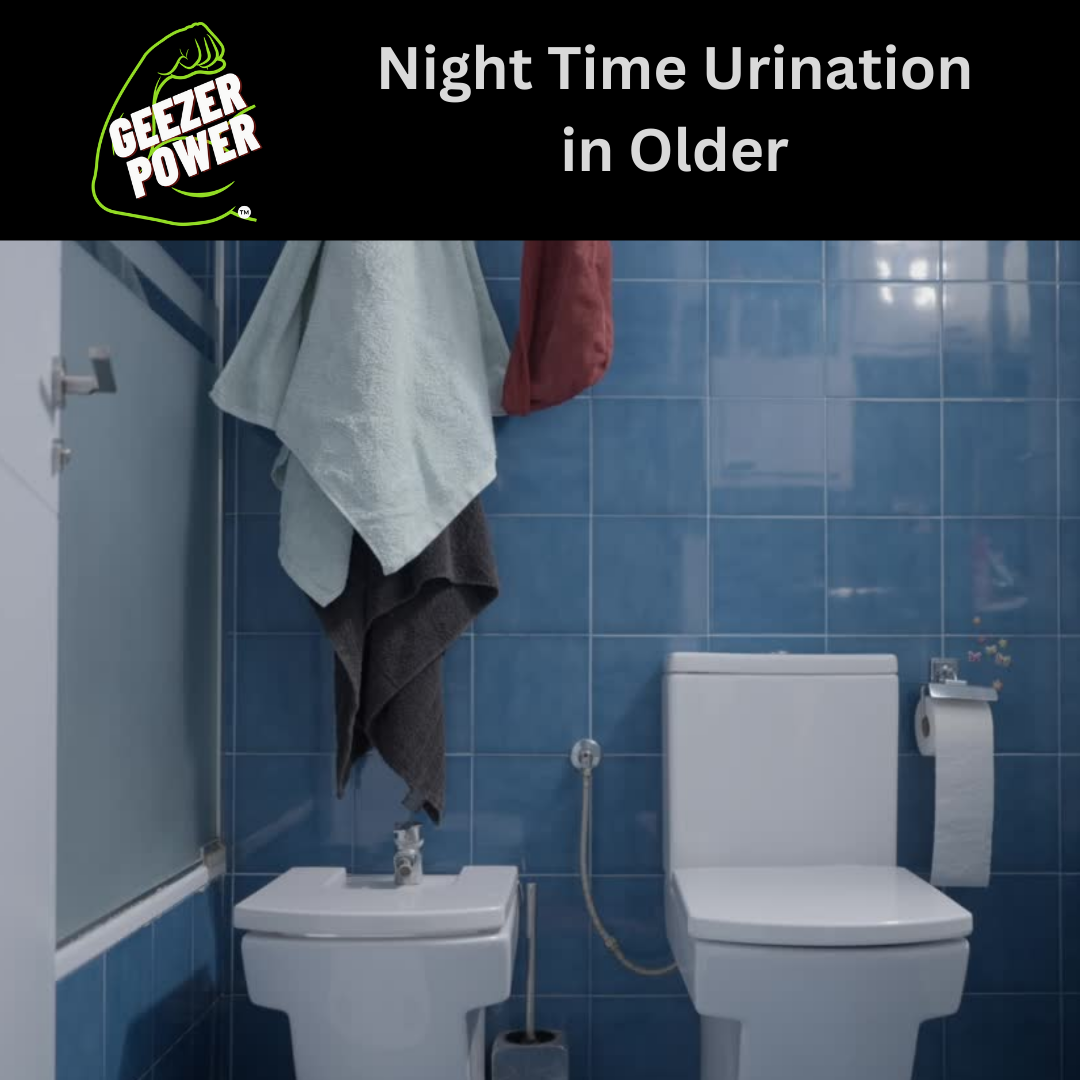
Night Time Urination in Older Men
Managing Nocturia: Understanding Urination in Older Men and Preventive Measures
Nocturia, the frequent need to urinate at night, is a common issue affecting many older men. This phenomenon can disrupt sleep and impact overall quality of life. By exploring the dietary and lifestyle factors influencing nocturia and discussing preventive strategies, we can empower individuals to manage this condition effectively and improve their well-being.
Understanding Nocturia in Older Men:
Nocturia is characterized by the need to wake up at least once during the night to urinate. While it can occur in individuals of all ages, it becomes more prevalent with advancing age due to various physiological changes. Let’s delve into the factors contributing to nocturia and strategies to mitigate its impact.
Factors Influencing Nocturia:
- Fluid Intake: Consuming large amounts of fluids, especially close to bedtime, can increase urine production and contribute to nocturia.
- Diuretic Foods and Beverages: Certain foods and drinks have diuretic properties, meaning they promote urine production. Examples include caffeine-containing beverages (coffee, tea), alcohol, and spicy foods.
- Medications: Some medications prescribed for other health conditions can have diuretic effects, leading to increased urine production and nocturia.
- Prostate Enlargement: Benign prostatic hyperplasia (BPH), common in older men, can obstruct urinary flow and cause nocturia.
Interconnection Between Diet and Nocturia:
Dietary choices can significantly impact nocturia:
- Diuretic Foods: Avoiding or minimizing consumption of diuretic foods and beverages, especially in the evening, can reduce nighttime urination frequency.
- Fluid Management: Distribute fluid intake evenly throughout the day and reduce consumption in the hours leading up to bedtime to minimize nocturia episodes.
- Nutritional Balance: A balanced diet rich in fiber, fruits, vegetables, and lean proteins can support overall urinary health and reduce nocturia symptoms.
Chronic Events and Nocturia:
Nocturia can also be influenced by chronic health conditions:
- Diabetes: Poorly controlled diabetes can lead to increased urine production (polyuria) and nocturia.
- Heart Disease: Cardiovascular conditions can affect fluid balance and contribute to nighttime urination.
Preventive Actions for Managing Nocturia:
Adopting preventive measures can help manage and reduce the impact of nocturia:
- Limit Fluid Intake Before Bed: Reduce consumption of fluids, especially diuretic beverages, in the evening to minimize nocturia episodes.
- Monitor Medications: Consult with a healthcare provider to review medications and discuss potential adjustments to minimize nocturia side effects.
- Pelvic Floor Exercises: Practicing pelvic floor exercises (Kegel exercises) can strengthen bladder control and reduce urinary frequency.
- Address Underlying Conditions: Manage underlying health conditions, such as diabetes or BPH, that contribute to nocturia through appropriate medical treatment and lifestyle modifications.
Benefits of Proactive Nocturia Management:
Taking a proactive approach to managing nocturia can lead to several benefits:
- Improved Sleep Quality: Minimizing nighttime disruptions due to urination can improve sleep duration and quality.
- Enhanced Quality of Life: Reduced nocturia frequency allows for uninterrupted rest and improved daily functioning.
- Better Overall Health: Managing nocturia often involves adopting a healthier lifestyle, which can positively impact overall health and well-being.
Possible Complications of Nocturia:
Untreated or unmanaged nocturia can lead to several complications:
- Sleep Disturbances: Chronic sleep disruptions due to nocturia can contribute to fatigue, irritability, and cognitive impairment.
- Increased Fall Risk: Getting up multiple times at night to urinate increases the risk of falls and injuries, especially in older adults.
- Reduced Quality of Life: Persistent nocturia can diminish overall quality of life and impact social and occupational activities.
Conclusion:
Nocturia is a common concern among older men that can significantly affect daily life and well-being. By understanding the dietary, lifestyle, and health factors influencing nocturia and adopting proactive management strategies, individuals can effectively manage symptoms, improve sleep quality, and enhance overall quality of life. Remember, addressing nocturia requires a comprehensive approach that considers diet, hydration, medications, and underlying health conditions to achieve optimal urinary health and well-being.